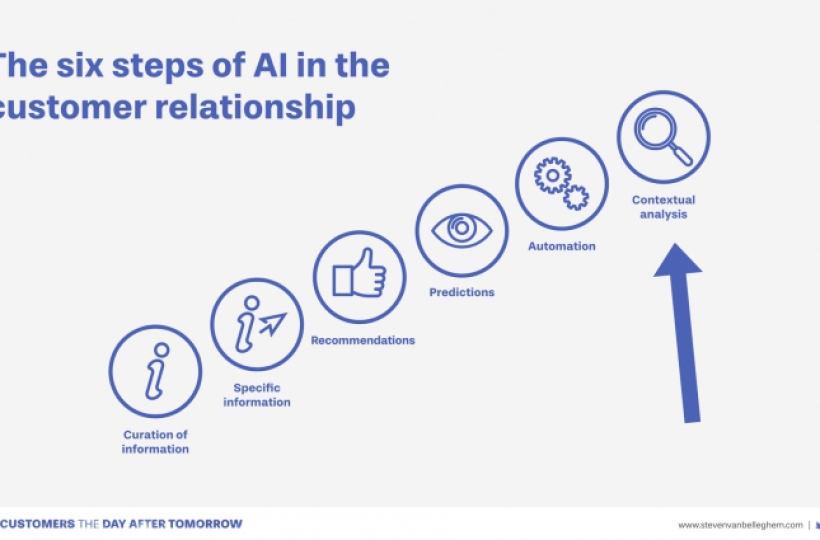How will AI influence the customer experience? 6 steps:

Since the founding of the internet, one of the primary challenges has been to help people get the information they want and need. Google was the first major company to solve this for search, which has contributed to their huge rise. But that was the first generation, pre-AI. Already, though, AI can help remind you about getting to your appointments on time, by incorporating information from your schedule and publicly-available traffic information. This is a good start, but think of the implications once these algorithms can use broader databases of information about individual customers for things like national tax. Rather than having to pore over dozens or hundreds of pages of complicated tax code, citizens can get the answers to their specific problems right away, using AI.
The flip side of getting precise answers to questions you’ve already asked is being able to use that information to get better predictions about, well, everything. A useful way to think about just how pervasive this is going to get is to just think of predictions as becoming “a new dimension of reality.” These kinds of AI-generated predictions are going to be so seamlessly integrated with every part of your customer experience that you’ll only notice an increase in the quality of what you interact with and buy. Already, this kind of technology is used by a Belgian startup called Scriptbook, which can examine an unproduced movie script, and predict whether it’ll be a hit or not. Think of what it will be able to do with when to improve your individual experience!
Finally, we’re talking about automation. And, of course, one of the most important parts of the automation story these days is in driverless cars. Within the next 5-10 years, we’ll be moving from a situation where automation kind of augments the human driver to the point where the human driver isn’t even in the situation anymore. And that will be truly transformative. What I also want people to focus on is improvements coming in the field of chatbots. At the moment, a lot of the interactions there feel tree-driven and unnatural, so people shun them. But as language improvements with things like Google translate have shown, AI-driven conversation drivers are just around the corner. Within about 5 years, discussions with chatbots are going to feel as natural as normal conversation!